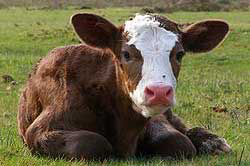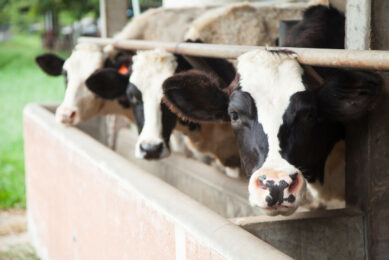Calves do better with Selenium-rich colostrum

US research looked at the effect of supra-nutritional maternal and colostral selenium supplementation on passive absorption of immunoglobulin G in selenium-replete dairy calves.
Selenium (Se) is an essential micronutrient for ruminant animals affecting both performance and immune functions. In the study, dairy cows at a commercial dairy were fed either 0 (control cows) or 105 mg of Se-yeast once weekly (supranutritional Se-yeast-supplemented cows), in addition to Na selenite at 0.3 mg of Se/kg of DM in their ration. The supplements were given during the last eight weeks before calving.
After birth, calves were fed pooled colostrum from control or supra-nutritional Se-yeast-supplemented cows to which 0 or 3 mg of Se/L (in the form of Na selenite) was added.
The calves that received the Se-yeast-supplemented colostrum showed higher WB-Se and serum-Se concentrations for the first two weeks, and higher IgG absorption efficiency, resulting in higher serum-IgG concentrations and higher total serum-IgG content, compared to the control group.
Calves that received colostrum with added Na selenite had higher WB-Se concentrations for the first two weeks, but only at 14 days of age were serum-Se concentrations, serum-IgG concentrations and total serum-IgG content were higher, compared with calves that were fed colostrum without added Na selenite.
The researchers suggest that feeding cows supra-nutritional Se-yeast supplement during the dry period or spiking colostrum with Na selenite both improve IgG status of Se-replete calves.
This study was published in the Journal of Dairy Science 2014 Apr 23.











